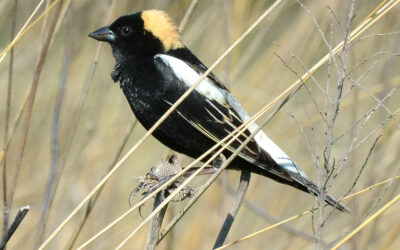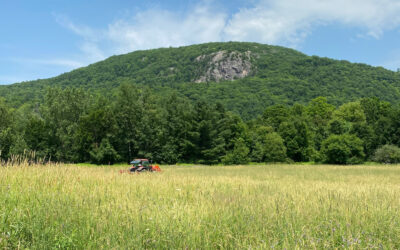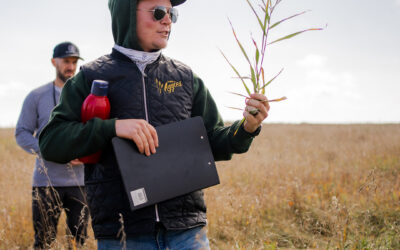ALUS participant Dennis Norosky cultivates grain, but he also protects wetlands and helps mitigate flooding downstream from his land just outside Newdale, Manitoba.

Denise and Dennis Norosky stand in a swathed field on their organic farm just outside of Newdale, Manitoba.
In 1993, ALUS participant Dennis Norosky returned to his family farm—We Can Farm—near Newdale, Manitoba to try things a little differently. With the support of his wife Denise, Dennis began organically farming their land.
When the ALUS program came to their community, Dennis and Denise saw an opportunity to further their work with nature.
After joining the ALUS Assiniboine West in 2015, Dennis and Denise enrolled a whopping 97.7 acres into the ALUS program. Dennis saw the program as providing an essential benefit to the marginal land on his farm.
Now, his organic farm not only gives back to the community through its commercial yield, but it delivers an abundance of ecosystem services, such as cleaner water, flood and drought resistance and wildlife habitat.
Of the nearly 100 acres enrolled in ALUS, there are about 70 acres of enhanced wetlands and 20 acres of conserved wetlands. Additionally, Dennis seeded over 5 acres of marginal cropland next to the wetlands to create deep-rooted perennial grasses. This transitional buffer area between waterbodies and crop plays a vital role in filtering excess nutrients from water runoff.
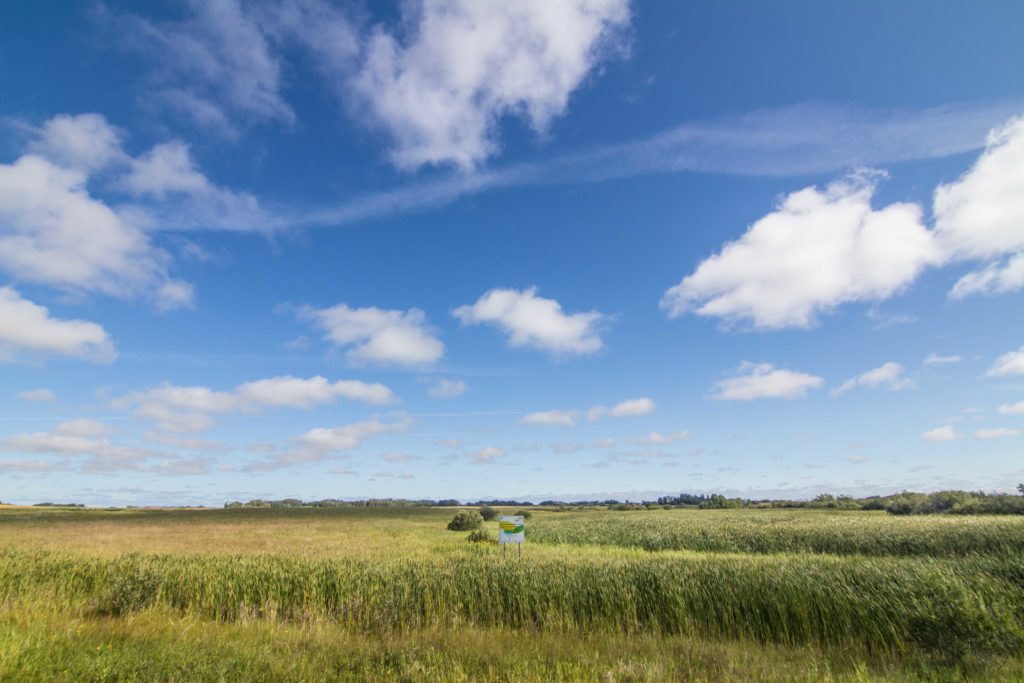
This photo shows the Norosky riparian buffer project with ALUS signage, under a vast prairie sky. Although this photo was taken during drought-like conditions in August 2019, the lush green in the riparian area and among the waterbodies is because these areas are well adapted to holding water. So, the vegetation can continue to grow well despite the dry conditions.
Why ALUS? Dennis found that the ALUS program allowed for more flexibility than other programs. In particular, ALUS supported his needs on the land.
Because nature is unpredictable, “ALUS’ flexible agreements are important. It allows us to adjust our management,” said Dennis. It’s also important to Dennis that he maintain the right to access his land.
Rife with nutrients, good topsoil is essential to Dennis’ work as a producer of organic grain. By converting marginal cropland to permanent tall grass cover, Dennis has implemented a plan that will see these grasses keep his topsoil in tiptop shape. The buffer areas around the wetlands prevent the topsoil from moving off Dennis’ working landscape and into the adjacent waterbody. It does double duty: keeping the working landscape robust and contributing cleaner water.
For parts of his land that were challenging to access, Dennis realized conventional grass seeding was not an option. Instead, he stopped traditional farming in these areas and carefully managed the natural revegetation process. This method worked well on this part of Dennis’ land, because it sits adjacent to areas already home to wild vegetation, which means a good seed bank already existed in the soil that helped to create a vibrant and dynamic ecosystem in the new buffer area.
These projects, the management of the wetlands—their enhancement and stability—and the buffer zone, are also key to water management practices on Dennis’ farm. Like wetlands all across the prairies, the ones on Dennis’ land act as sponges for water. They provide storage for moisture during snowmelt and flood events and retain moisture through dry spells.
Thanks to Dennis and the other participants in ALUS Assiniboine West, communities downstream in the Assiniboine River Watershed, such as Brandon, Manitoba, benefit from the role of these wetlands playing, helping curb flooding events and maintain healthier waterbodies.
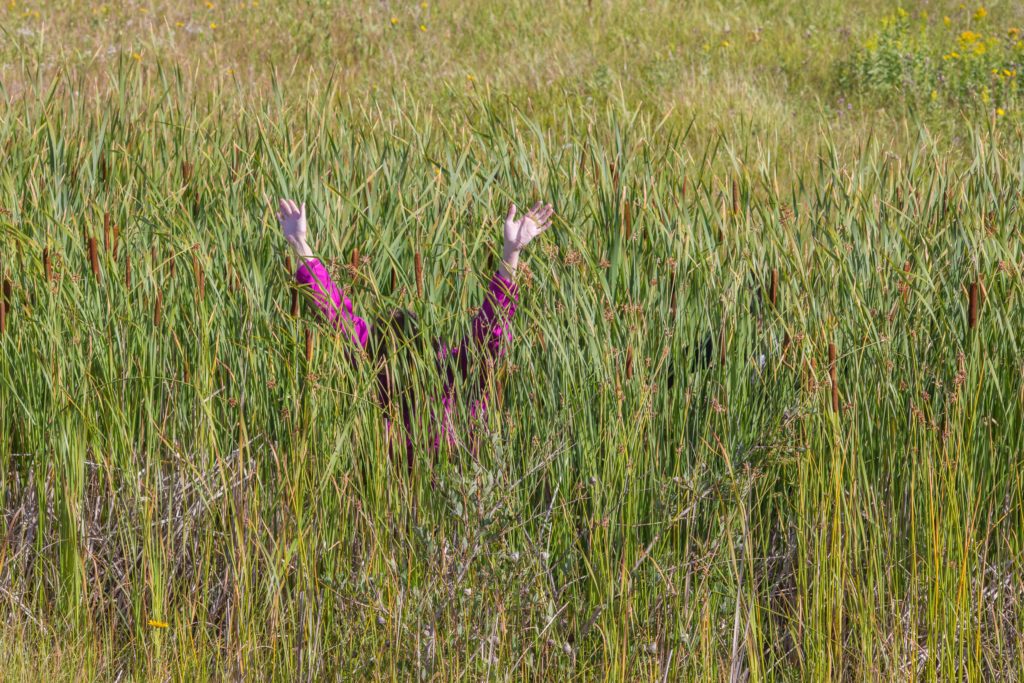
ALUS Assiniboine W Community Coordinator, Colleen Cuvelier, shows off the height of the tall grass at the riparian buffer site.
Assiniboine West is one of five ALUS communities supported by the Intact Foundation’s Adaptation Action Grants, building a more resilient Canada.

